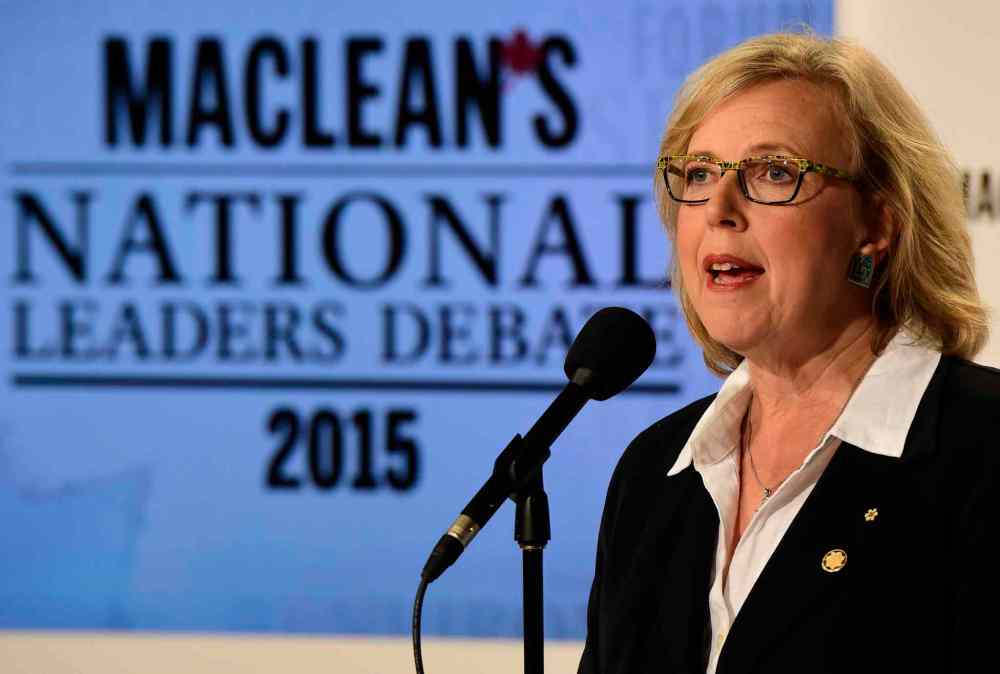Political back burner wrong place for ‘women’s issues’
Advertisement
Read this article for free:
or
Already have an account? Log in here »
To continue reading, please subscribe:
Monthly Digital Subscription
$0 for the first 4 weeks*
- Enjoy unlimited reading on winnipegfreepress.com
- Read the E-Edition, our digital replica newspaper
- Access News Break, our award-winning app
- Play interactive puzzles
*No charge for 4 weeks then price increases to the regular rate of $19.95 plus GST every four weeks. Offer available to new and qualified returning subscribers only. Cancel any time.
Monthly Digital Subscription
$4.99/week*
- Enjoy unlimited reading on winnipegfreepress.com
- Read the E-Edition, our digital replica newspaper
- Access News Break, our award-winning app
- Play interactive puzzles
*Billed as $19.95 plus GST every four weeks. Cancel any time.
To continue reading, please subscribe:
Add Free Press access to your Brandon Sun subscription for only an additional
$1 for the first 4 weeks*
*Your next subscription payment will increase by $1.00 and you will be charged $16.99 plus GST for four weeks. After four weeks, your payment will increase to $23.99 plus GST every four weeks.
Read unlimited articles for free today:
or
Already have an account? Log in here »
Hey there, time traveller!
This article was published 26/09/2015 (3749 days ago), so information in it may no longer be current.
Somehow, 31 years after Canadians watched the nation’s first televised leaders’ debate on women’s issues, Monday brought us back to a familiar place.
The venue was different, that plaintive feeling the same. There we were, women shouldering our burdens, talking — but mostly to each other, again.
It wasn’t supposed to go quite that way. Originally, the Up For Debate event was to be a face-off between party leaders. But Stephen Harper refused to take part, and Thomas Mulcair wouldn’t attend if the prime minister did not. With that, over Green Party leader Elizabeth May’s protests, the debate format came undone.

“It is emblematic of the challenges women face in Canadian society that a debate on women’s issues has been cancelled because of men who choose not to debate,” May said in a campaign email release Monday night. “Women’s issues must be discussed in an election campaign.”
To their credit, organizers didn’t give up, and instead retooled Up For Debate as a forum discussion. Journalist Francine Pelletier filmed one-on-one interviews with the four leaders not named Stephen Harper. She cut a highlight reel of their answers about topics such as the representation of women and violence against us. The event was livestreamed from the University of Toronto, where panels of accomplished women took the stage to analyze policies and illuminate their cracks.
It was a relatively short event, and some topics went under-discussed: health care didn’t come up much, discussion about the rights of transgender women was entirely absent, and there was a comparatively brief focus on the challenges facing indigenous women.
Still, on its face, Up For Debate was a valiant effort. The organizers, drawing on an alliance of more than 170 women’s groups, worked very hard. Many panellists offered whip-smart observations about party platforms. For instance, Toronto community-health organizer Angela Robertson pointed out any discussion about child-care funding must also consider the conditions for child-care workers.
Good point, but with the leaders absent, it was hard to stop thinking: Are any of the people in charge actually listening?
So there was something about Up For Debate that rankled, and some participants echoed something along that sentiment. Maclean’s writer and event moderator Laura Payton acknowledged “women’s issues” is, itself, a dated term. Several times, speakers remarked on the strangeness of relegating these topics to a separate forum.
Women are, after all, a majority demographic. Our integration with Canadian life is total and our lives should be an indivisible part of every political debate. Maybe a forum on women’s issues shouldn’t have been necessary, because we could have been assured they would have a place at every step of the electoral way.
This seems an odd time for women in political discussion; our voices are more established than ever, yet still haphazardly relegated to optional corners. There have been successes: for instance, as Canadian Centre for Policy Alternatives researcher Kate McInturff pointed out, the Liberals and NDP are duking it out over competing child-care platforms. Once, not so long ago, the idea of that being a central election battle seemed fantastical.
Now, perhaps it’s time to do the same for all the other topics on the political table, time to let go of the persistent treatment of women’s issues as niche.
Everything in the world is a “women’s issue,” because there is nothing in the world that does not affect us and nothing we do not affect. Some issues hinge more on our lives than others’ — such as reproductive health-care access and rights — but that ought not make them less intrinsic to a complete public discussion.
So perhaps the question isn’t what parties think about women’s issues, but how much they understand how economy, environment, society and government shape and are shaped by women’s lives. And they should be expected to demonstrate that understanding in every part of their platform, every debate, and all the time.
Instead, on Monday night it was hard to escape the feeling we were sitting outside. On Up For Debate’s video, when Justin Trudeau answered Pelletier’s question about violence with vague statements about “issues around pornography” and misogynistic music lyrics, Robertson observed something was missing.
“We didn’t get a sense about an understanding of women’s inequality,” she said. “We heard about parenting. We heard about rap music. But I didn’t hear a commentary about patriarchy and women’s inequality.”
If these topics had been tackled in person, a savvy moderator or opponent might have navigated for specifics. There would have been competition between candidates to advance their views most strongly. And if nothing else? At least women and our place in the Canadian experience would have had their full attention — and perhaps it’s time for that to be a mandatory feature of every political debate, not an option.
melissa.martin@freepress.mb.ca

Melissa Martin
Reporter-at-large
Melissa Martin reports and opines for the Winnipeg Free Press.
Every piece of reporting Melissa produces is reviewed by an editing team before it is posted online or published in print — part of the Free Press‘s tradition, since 1872, of producing reliable independent journalism. Read more about Free Press’s history and mandate, and learn how our newsroom operates.
Our newsroom depends on a growing audience of readers to power our journalism. If you are not a paid reader, please consider becoming a subscriber.
Our newsroom depends on its audience of readers to power our journalism. Thank you for your support.













